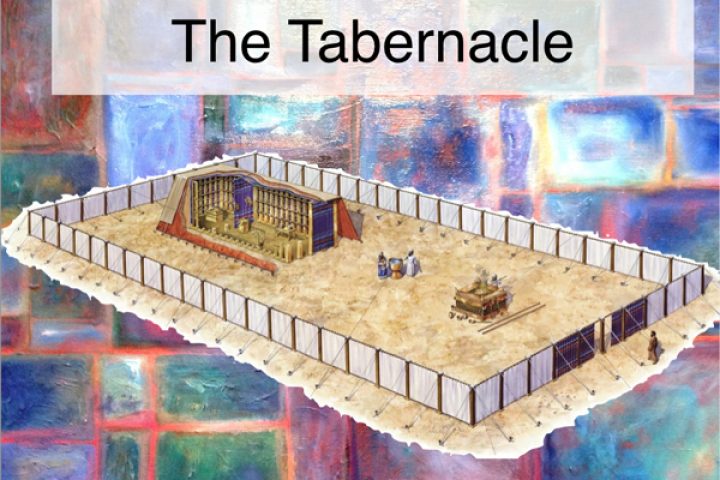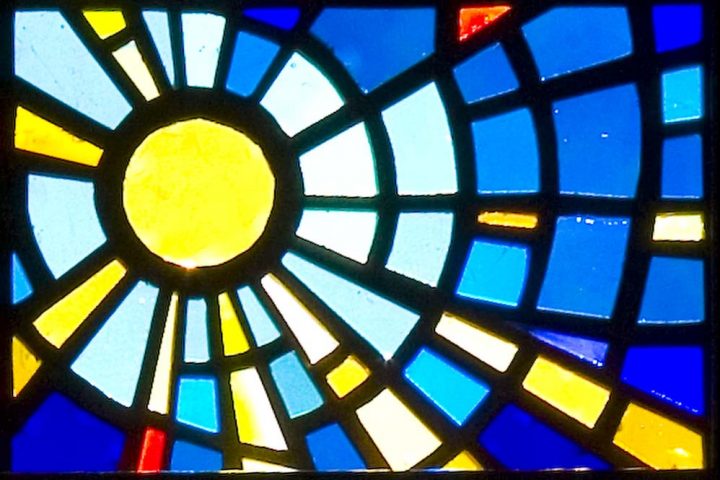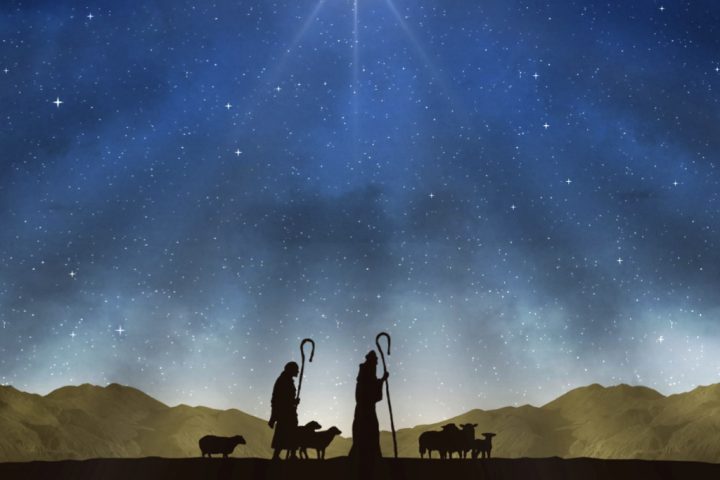Subscribe with iTunes, Google Podcasts Or, paste the feed URL into your favorite podcast reader (https://pbcc.org/feed/sermon-podcast/).
Consecrated to God
Exod 29:1-46 017 is the 500th anniversary of the Reformation, dated to the moment when Martin Luther nailed his Ninety-Five Theses to the door of the Castle Church in Wittenberg. Luther recovered many Biblical truths that had been lost by the church in the previous thousand years. Among these was the idea of the priesthood of all believers. The medieval church divided Christians into a spiritual class of priests and monks consecrated to God, and the secular laity. In ancient Israel Aaron and his sons were ordained and consecrated to the Lord to serve him as priests in his sanctuary. But this exclusive priesthood did not carry over into the New Testament church. Instead, all God’s people are priests. We are “being built up as a spiritual house, to be a holy priesthood, to offer spiritual sacrifices acceptable to God through Jesus Christ” (1 Peter 2:5).
Jesus our Great High Priest
Exod 28:1-39 Continuing our series on the Tabernacle, we consider the high priest. He was the only one able to pass through both screens and the veil to enter into the Holy of Holies. He entered only once each year, on the Day of Atonement. Dressed in an elaborate set of holy garments, he carried on his heart and on his shoulders the names of the twelve tribes of Israel, so that, represented by him, they too were remembered before the Lord. But each year he had to come back out of Holy of Holies. Jesus, though, as our great high priest, has entered permanently into God’s presence, a minister in the holy places. In him, we are remembered permanently before the Lord. Our names are written on his hands.
Exclusion and Embrace
Exod 26:1-37 & 27:9-19 We return to the tabernacle for the month of February. This Sunday we will consider the tent and the courtyard which housed the seven items of furniture. God instructed Israel to make the tabernacle as a sanctuary so he could dwell in their midst (Exodus 25:8-9). But it was a dangerous thing for a holy God to dwell in the midst of a sinful people. They needed protecting from each other. Two screens and a veil progressively excluded people from approaching closer to God. They were excluded on the basis of ethnicity, of gender, of family background, and of physical perfection, until only one person was left who could enter the Most Holy Place, and he only on one day of the year. But now “we have confidence to enter the holy places by the blood of Jesus, by the new and living way that he opened for us through the curtain” (Hebrews 9:19-20). All the barriers are gone: “There is neither Jew nor Greek, there is neither slave nor free, there is neither male nor female, for you are all one in Christ Jesus” (Galatians 3:28). Exclusion has changed to embrace. God invites all to enter into his hospitality in Christ.
Grace and Marriage
1 Pet 3:1-7 “A cord of three strands is not quickly broken.” (Eccl. 4:12 NIV) This verse from Ecclesiastes describing the advantage of being joined with friends and companions rather than remaining alone is often used as a metaphor in marriage ceremonies to describe the union of a man and a woman in Christ. In the world, there is much discord between men and women and husbands and wives. But this is never what God intended. He created male and female so that together they could reveal his glory and grace. The gift of marriage is an aspect of these purposes. Three strands joined together can have incredible influence. Marriage is our topic in the book of 1 Peter this Sunday. But even if you are not married there is much to be gained from these verses that can aid the spread of the gospel in the world.
Submitting, Suffering, & Serving: The New Way Forward
1 Pet 2:18-25 “That’s not fair!” Something we’ve all thought time and time again. “Life’s not fair” is a reality we try to teach our children, yet it’s also a reality we struggle to accept even as adults. Jesus had every right on numerous accounts to speak up in his own defense with, “That’s not fair.” But He didn’t. He accepted unjust punishment and suffered an unjust death. This was the model He left for us. How can a passage in Peter that speaks to household servants teach us to better represent Jesus 2000 years later? What does it look like? Here’s a hint from Peter: See the “Suffering Servant” passages from Isaiah 53 for the blueprint to follow!
Nations Under God
1 Pet 2:13-17 Leadership has been and continues to be necessary for any country or tribe of people. People around the world live under governing authorities and that government differs from nation to nation. Living in the U.S is different than living somewhere else in the world and living in this century is different than living in the 1st century. How are we as pilgrims on earth to relate to governing authorities? This was a question Peter dealt with in his first epistle and a topic we encounter this Sunday, quite appropriately, on the eve of the inauguration and the beginning of a new administration. For us today the topic of government and laws is very complex especially living in a world where we are so aware of global events. The topic raises for us very difficult questions. We will pray for our new leaders on Sunday and raise some challenging questions to ponder. Hopefully this will lead to some edifying discussion and conversations. Remember, as we talked about last week, people are watching and listening to us as followers of Jesus.
People Are Watching
1 Pet 2:11-12 As believers, we are pilgrims on the earth making our way towards the heavenly city. The future is certain and we know where we are headed. But we also have a high calling for the present and that is to live not only in a right relationship with God but also within our society. Even though we are weak and imperfect we have been called out of darkness into the light to bring the light of Christ into the world through the way we live our lives.
We return this Sunday to Peter’s first epistle, a study we began last winter. We pick up the series as Peter transitions to the main section of the letter. Peter has two concerns. First, when possible they are to live in accordance with the social order of their society. Second, if they suffer for their faith in Jesus (which was already beginning to happen) they are to follow the pattern of Jesus. This is a great word for today, especially in our culture of power and control. People are watching how we live our lives. To prepare for this Sunday you might want to read the first couple of chapters of 1 Peter.
Stories and The Story
Stories and The Story
The Bible contains many stories, some familiar, others unfamiliar. Our new art exhibit depicts many of these stories. The Bible as a whole tells a single story, into which these individual stories fit. Much of this overarching story is depicted in the window which was installed ten years ago. To start the new year we will consider God’s story and how it intersects our story.
And Heaven and Nature Sing
Luke 2:1-20 On this fourth Sunday of Advent, Christmas Day, we hear the voice of the angel announcing to the shepherds, “Do not be afraid. I bring you good news that will cause great joy for all the people” (Luke 2:10-11). At critical times in Israel’s history when their world grew oppressive and morally dark, God intervened to subvert the existing order announcing “good news” of a new beginning, a fresh start, often through a deliverer who would be born to a barren woman. Yet, despite God’s faithfulness, giving Israel a fresh start again and again, it never lasted. There was always an ominous crack in the foundation of the new order, a fatal character flaw in the human instruments. Why should we expect this “good news” to be any different? How can we be sure it will last? What clues does Luke give us that this will be history’s last new beginning upon which everything else will be built, a beginning that evokes everlasting praise from every creature and all of creation? Join us Christmas Day to receive God’s gift and when you open it, “heaven and nature sing!”
What Are You Waiting For?
Luke 2:25-35 “Sovereign Lord, as you have promised, you may now dismiss your servant in peace.” These are the words spoken by Simeon upon holding a 40-day old baby Jesus. He didn’t know how the Lord would bring an end to the waiting, but as soon as he beheld the Baby, he knew his waiting was over! We have become accustomed to waiting as well. We wait for many things. We wait for Christmas morning and the giving and receiving of gifts. We wait for a spouse. We wait for a house. We wait for promotions or new job opportunities. But do we wait for the Messiah like Simeon? We are reminded in this season that the greatest gift ever given came on a Christmas over 2000 years ago. He came then. He will come again! Most of the gifts we give and receive this Christmas will be out of our lives within 5 years… or even 1 year. But the gift of Grace that came in the Baby, that gift will never be rendered obsolete! What are you waiting for this Christmas? Join us this Sunday as we will all gather together as His family (from kindergartners on up) and continue to prepare for the coming of the King!
The Benedictus: Advent Blessings
Luke 1:57-79 “Blessed be the Lord, the God of Israel.” When John is born and Zechariah suddenly regains his speech, these are the first words out of his mouth. Why does Zechariah bless God? Why should we bless God? Advent is a “speed bump” during the year that allows us the opportunity to remember the blessing of the incarnation and to bless and praise God in return. During these weeks of Advent, we are focusing on the songs of Mary, Zechariah, Simeon, and the angels which we find in the opening chapters of Luke’s gospel. This week we turn to the Benedictus, named for the first word of the song in Latin, “blessed.” Many people do not feel blessed during the Christmas holidays, but Luke’s gospel comes to the rescue. As we gather this Sunday we will look to Zechariah’s song to set our hearts on God and remember the blessings of the Christmas season.
The Magnificat: He has remembered his love!
Luke 1:48-55 While the world rushes from Black Friday and Cyber Monday into the hectic frenzy of Christmas, with its seasonal liturgy of music and art, much of the church observes Advent, when we remember God’s promises to come to his people, and anticipate the second advent of our Lord Jesus Christ. How would you have responded had you been there when God fulfilled those promises through the birth of Jesus? According to Luke’s account, those who were there responded in song. Rather, they responded in psalm-like poetry, which the church quickly set to music and has sung ever since, often every day. We know these Lukan canticles (songs) by their opening words in Latin: the Magnificat of Mary, the Benedictus of Zechariah, and the Nunc Dimittis of Simeon. In the three remaining Sundays of Advent we will look at these three songs in turn. On Christmas Day itself we’ll consider the Gloria, sung by the angels announcing to the shepherds the birth of Jesus.



